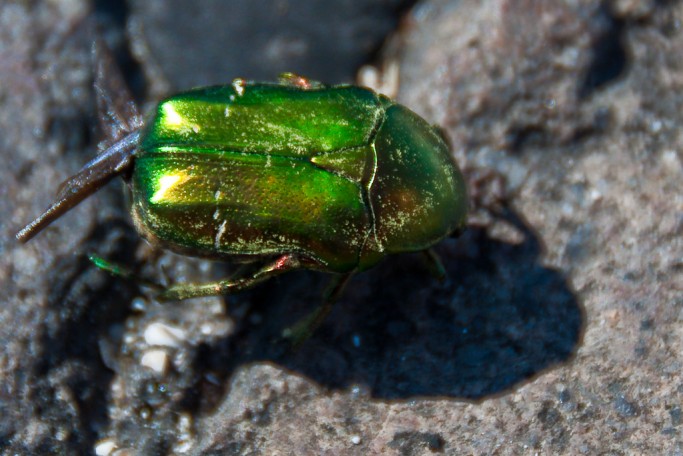
Photo: David Blaikie
A Japanese beetle infestation in your lawn or garden is best dealt with by using a two-step approach. One product should be applied to kill the adult beetles and another to take care of the larva which will become adults next Japanese beetle season.
I advocate using an all-natural method because such products are just as effective at killing Japanese beetles and they don’t have any of the negative side effects that some of the other products can have.
Of course, the adult beetles are the ones that you are seeing in your garden which are eating and skeletonizing the leaves of your plants. They are best controlled with one of two all-natural powders: diatomaceous earth or seven dust.
Both of these products kill adult Japanese beetles by attaching to the exoskeleton of the insect. After contact, the dust dehydrates the Japanese beetle to the point of death, although it does take a few days. Keep in mind that other insects are also killed by diatomaceous earth and seven dust.
Overall, the one most effective product for getting rid of Japanese beetles in your lawn is milky spore powder, but it does not kill adult Japanese beetles. Milky spore is, however, highly effective at killing Japanese beetle larva.
This is because the larva are very susceptible to the Paenibacillus bacterium (contained in milky spore powder) which causes milky spore disease. This product will prevent Japanese beetle eggs and larva from developing into adult beetles to terrorize your garden.
The distinct disadvantage of milky spore powder is that because it only affects the larva and not the adults, it can take a season or two before it takes hold and you notice a difference in the number of Japanese beetles you see in your garden.
This is why I suggest that you take a two-step approach and apply two different products– one for the adults and one for the developing larva. The diatomaceous earth will kill the adults within a matter of a few days, and the milky spore is a better long-term solution.
By using this approach, you also ensure that your garden is not inundated with harsh pesticides and unwanted chemicals. In fact, the products I mentioned are considered organic so your garden can still be considered organic as well.

Leave a Comment